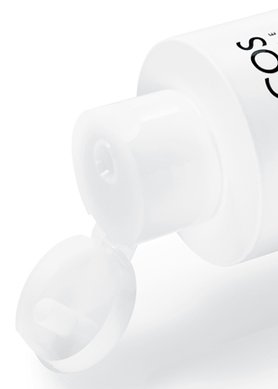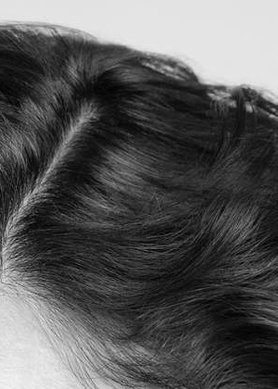Both dandruff and hairfall are prominent scalp and hair concerns that affect approximately 1 in 2 Australians of all genders123. As such, many individuals have questions about whether dandruff can cause hair fall. To gain clarity on this topic, we have deferred to anti-dandruff hair care specialists, Dercos, to examine the connection between dandruff and hair fall as well as management options.
1https://www.healthdirect.gov.au/male-pattern-baldness
2https://www.betterhealth.vic.gov.au/health/conditionsandtreatments/dandruff-and-itching-scalp
3https://www1.racgp.org.au/ajgp/2018/july/female-pattern-hair-loss
Can dandruff cause hair loss?
The causes of fall vary and are largely dependent on several factors, including genetics, age, pre-existing medical conditions, medication, vitamin deficiencies, and lifestyle or hormonal changes.4 Dandruff alone does not cause hair fall, but there is still a lot to be learned about the correlation between dandruff and hair fall. Continue reading as we delve into the root cause of dandruff and how it can make the scalp vulnerable and thus susceptible to potential hair fall or thinning.
4https://www.aad.org/public/diseases/hair-loss/causes/18-causes
What is the link between dandruff and hair loss?
To understand the relationship between dandruff and hair fall, it’s important to recognise how dandruff forms. Dandruff occurs on the scalp when the natural shedding of dead skin cells is accelerated, resulting in a buildup of dead skin cells. Imbalances of the scalp, sebum levels, and a sensitivity to oleic acid all contribute to a scalp imbalance that speed up your skin cell turnover5. This means that dead skin cells collect on the scalp faster than they shed.
Depending on the type of dandruff you have, these dandruff flakes can differ in colour and size:
- Oily skin dandruff usually clumps together in the scalp and hair. It is usually large and yellowish in appearance.
- Dry skin dandruff is small, white and can flake off more easily onto clothes.
Despite difference in texture and colour, all kinds of dandruff can trigger itching sensations. Vigorous or persistent scratching can lead to a damaged or sensitised scalp which may affect the strength of your hair follicles or exacerbate existing hairfall concerns.
5https://pubmed.ncbi.nlm.nih.gov/16382685/
What is link between thinning hair and dandruff?
While hair fall and hair thinning may seem similar, hair fall is often more sudden than hair thinning, which happens gradually over time. Hair thinning is common with age, and gender can also dictate the thinning pattern on the scalp. For instance, men usually thin at the crown or front of the hairline, while women will notice thinning in the form of a widened part. Like other hair concerns, scalp imbalances plays a critical role in thinning hair and dandruff.
A dandruff-prone scalp (and subsequent scratching) can weaken the anchoring of the hair fibre to the follicle, which can prematurely push hairs into the ‘telogen’ or fall stage of the hair life cycle.6 When more hairs than normal enter this fall stage, this gives the appearance of thinning on the scalp. Scratching caused by dandruff can also lead to breakage, which may accentuate already thinning hair.
6https://www.ncbi.nlm.nih.gov/pmc/articles/PMC6369642/







